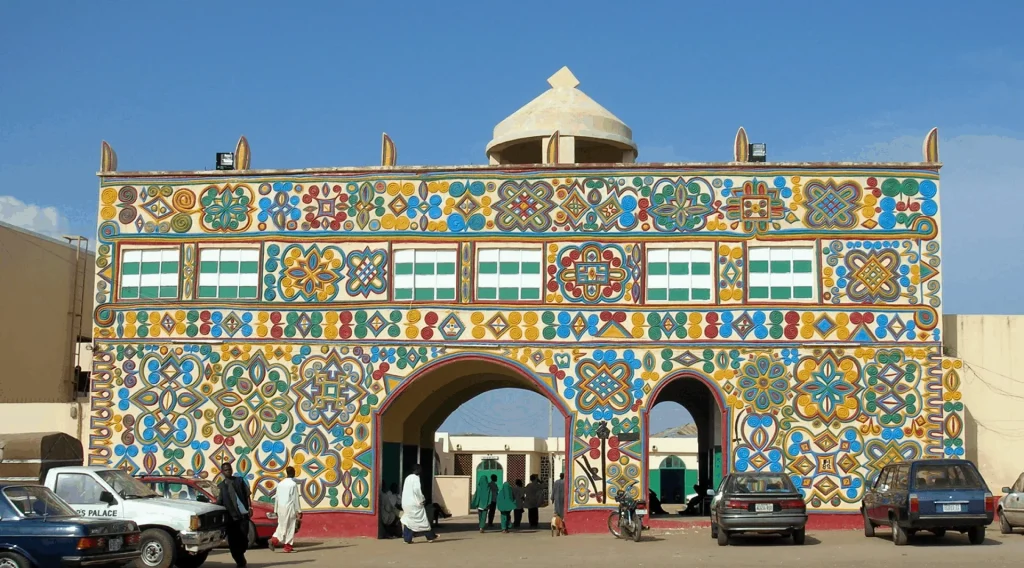Nigeria is a land of immense opportunities for entrepreneurs, with each state offering unique strengths and challenges. As we approach 2025, we explore the 10 best states for starting a business in Nigeria, supported by detailed metrics and insights.
We’ll unravel the untapped opportunities across Nigeria’s diverse states, spotlighting key data and trends that can help you make informed decisions. From thriving urban centers like Lagos to emerging hotspots like Gombe, we’ll explore where the profits are ripe and the challenges are surmountable. Whether you’re an investor, a developer, or simply a curious mind, this guide is your roadmap to thriving in one of Africa’s most promising property markets.
This list considers factors like government incentives, infrastructure, market size, and challenges you may face in each state.
1. Lagos State: The Business Capital of Nigeria

Why Lagos?
Lagos is the economic hub of Nigeria, contributing over 30% of the nation’s GDP and accounting for 90% of foreign trade flow. With a population exceeding 24 million (World Bank estimate), Lagos offers:
- A diverse market for tailored business strategies.
- Access to Nigeria’s busiest ports (Apapa and Tin Can).
- Government incentives like tax reliefs and grants for SMEs.
Top Opportunities
- E-commerce: Lagos accounts for over 50% of Nigeria’s online retail market, with an annual growth rate of 20% (Statista, 2024).
- Logistics and Delivery Services: With increasing demand for last-mile delivery, businesses like dispatch services and warehousing are booming.
- Fintech: Lagos hosts 60% of Nigeria’s fintech companies, receiving over $1 billion in investments in 2024 (CB Insights).
Challenges
- Traffic congestion: Daily gridlocks affect logistics and productivity.
- High cost of living: This impacts both operational costs and employee expectations.
- Competition: Saturation in several industries means new entrants must innovate to thrive.
2. Abuja: Nigeria’s Wealthy Capital

Why Abuja?
As the nation’s capital, Abuja attracts local and international investors. With improved security and government funding initiatives like Strategic Outreach Support (SOS) for traders, Abuja offers:
- High purchasing power among residents.
- Opportunities in real estate, agriculture, and education.
- Pro-business policies by the FCT Administration.
Top Opportunities
- Real Estate: With a growing demand for luxury apartments and commercial spaces, Abuja’s real estate sector grows at 10% annually (NBS).
- Education Services: Private schools and vocational training centers continue to thrive due to an influx of expatriates and urban migrants.
- Renewable Energy: Solar panel installation and maintenance businesses are gaining traction as Abuja prioritizes off-grid power solutions.
Challenges
- High property costs: Renting or purchasing space is expensive.
- Bureaucracy: Despite improvements, navigating government requirements can still be time-consuming.
- Limited skilled labor: The pool of highly specialized professionals is smaller compared to Lagos.
3. Rivers State: The Oil and Gas Giant
Why Rivers?
Home to Port Harcourt, Rivers State benefits from its status as Nigeria’s oil and gas hub. Entrepreneurs can explore:
- Opportunities in logistics, engineering, and supply chain services.
- Improved security in urban areas.
- Tax incentives for agribusiness and tourism.
Top Opportunities
- Oil Servicing and Equipment Leasing: With over $10 billion invested annually in oil exploration, support services are in high demand.
- Agribusiness: Cassava processing and fish farming are lucrative ventures, supported by state initiatives.
- Hospitality and Tourism: The state’s yearly tourism growth rate is 8%, driven by festivals and waterfront attractions.
Challenges
- Environmental concerns: Pollution and degradation from oil activities impact agriculture and tourism.
- Security risks: While urban areas are safer, rural parts still experience unrest.
- High cost of operations: Inflation and industrialization drive up operational expenses.
4. Kaduna State: Nigeria’s Rising Star

Why Kaduna?
Known as Nigeria’s third-largest consumer market, Kaduna boasts:
- A strategic location connecting the North and South.
- Annual Kaduna Economic and Investment Summit, which fosters business networking.
- A thriving agriculture and manufacturing sector.
Top Opportunities
- Textile Production: Kaduna’s industrial revival includes partnerships with foreign investors, creating demand for cotton and fabrics.
- Agro-processing: Ginger and groundnut oil processing industries are thriving, with export values reaching $200 million in 2024.
- Technology Hubs: The government has launched initiatives to make Kaduna a tech-friendly state, attracting startups.
Challenges
- Inconsistent electricity supply: Power cuts can disrupt production.
- Cultural diversity: Entrepreneurs must navigate varying consumer preferences.
- Insecurity in rural areas: Banditry and communal clashes are concerns.
5. Oyo State: Agricultural and Industrial Opportunities
Why Oyo?
Ibadan, the state capital, is a hub for agribusiness and industrial development. Key features include:
- Vast arable land for farming.
- Proximity to Lagos for market access.
- An 11 MW Independent Power Project to support industries.
Top Opportunities
- Poultry Farming: Oyo produces 15% of Nigeria’s poultry, making it a leader in the sector.
- Cassava and Cocoa Processing: With over 1.5 million hectares of arable land, Oyo is ideal for agro-processing factories.
- Tech Ecosystem: Ibadan’s burgeoning tech community has attracted funding for startups in 2024.
Challenges
- Infrastructure gaps: Some rural areas lack adequate road networks.
- Access to funding: Entrepreneurs may struggle to secure local financing.
- Bureaucratic delays: Getting necessary permits can be slow.
6. Kano State: A Commercial Powerhouse
Why Kano?
Kano is the second most industrialized state in Nigeria, offering:
- A large consumer base and affordable labor.
- Opportunities in agriculture, textiles, and crafts.
- Historic trade connections across West Africa.
Top Opportunities
- Leather and Tannery: Kano exports over $500 million worth of leather annually, with growing demand in Europe and Asia.
- Agriculture: Wheat and rice farming benefit from government subsidies and irrigation schemes.
- Trading Hubs: With its central location, Kano serves as a distribution center for northern Nigeria.
Challenges
- Outdated infrastructure: Some industrial zones need modernization.
- Cultural barriers: Non-indigenous businesses may face initial resistance.
- Water scarcity: Access to clean water for industrial use can be inconsistent.
7. Ogun State: The Industrial Gateway
Why Ogun?
Ogun benefits from its proximity to Lagos, making it attractive for:
- Manufacturing and industrial businesses.
- Transparent tax systems and government incentives.
- A skilled workforce supported by educational institutions.
Top Opportunities
- Cement Production: Ogun produces 70% of Nigeria’s cement, with ongoing expansions in the sector.
- Real Estate: Affordable housing projects are increasing, supported by public-private partnerships.
- Furniture and Wood Processing: Ogun’s forest reserves make it ideal for furniture production and timber exports.
Challenges
- Urban sprawl: Rapid development strains infrastructure.
- Environmental regulations: Businesses must comply with strict standards.
- Land disputes: Entrepreneurs should ensure due diligence in property acquisition.
8. Gombe State: A Rising Star in Ease of Doing Business

Why Gombe?
Ranked first in the Subnational Ease of Doing Business Report, Gombe offers:
- A secure and stable environment for businesses.
- High transparency in government dealings.
- Opportunities in agriculture, trade, and renewable energy.
Top Opportunities
- Renewable Energy: Gombe’s solar farms are attracting investment, with a projected $150 million influx by 2025.
- Aquaculture: Fish farming is growing, supported by government grants for agro-enterprises.
- Retail Chains: As a transit hub, Gombe is ideal for wholesale and retail businesses.
Challenges
- Limited market size: Businesses may need to rely on exports to nearby states.
- Infrastructure gaps: Development is ongoing but not yet robust.
- Skilled labor shortage: Specialized workers are scarce.
9. Akwa Ibom State: The Industrial and Tourism Hub
Why Akwa Ibom?
Akwa Ibom is renowned for its peaceful environment and government initiatives, such as:
- Accelerated processing of Certificates of Occupancy.
- The Ibom Deep Sea Port and Ibom Industrial City for large-scale investors.
- Opportunities in hospitality and tourism.
Top Opportunities
- Tourism and Hospitality: Akwa Ibom hosted over 500,000 tourists in 2024, contributing $50 million to the local economy.
- Palm Oil Processing: As a major producer, Akwa Ibom is well-positioned for export-focused ventures.
- Fishing and Aquaculture: Coastal resources provide opportunities for commercial fishing and seafood processing.
Challenges
- Dependence on oil revenue: Economic diversification remains a work in progress.
- Limited flight connections: The state’s Victor Attah International Airport has fewer connections compared to Lagos or Abuja.
- High start-up costs: Infrastructure for new businesses can be expensive.
10. Enugu State: The Gateway to the Southeast
Why Enugu?
Enugu offers a strategic location for businesses targeting the southeastern market. With its growing tech ecosystem and cultural tourism, opportunities abound in:
- ICT and software development.
- Agro-processing industries.
- Education and vocational training centers.
Top Opportunities
- Coal Mining: Enugu’s coal reserves remain untapped, offering potential for energy production and export.
- Tech Startups: The state’s emerging tech hubs are attracting investors for app development and fintech solutions.
- Cultural Tourism: Enugu’s festivals and historic sites are drawing increasing numbers of domestic tourists.
Challenges
- Poor road connectivity: Some parts of the state require better transportation networks.
- Limited industrial base: Entrepreneurs may face challenges sourcing raw materials locally.
- Youth unemployment: High unemployment rates can affect consumer spending.
Conclusion
Each state in Nigeria offers unique opportunities for entrepreneurs, but success depends on understanding both the benefits and challenges. Conducting thorough market research, leveraging local networks, and crafting innovative business strategies can help overcome these challenges and ensure sustainable growth.
What do you think about our list? Share your thoughts in the comments below!





Anambra state should be no:1